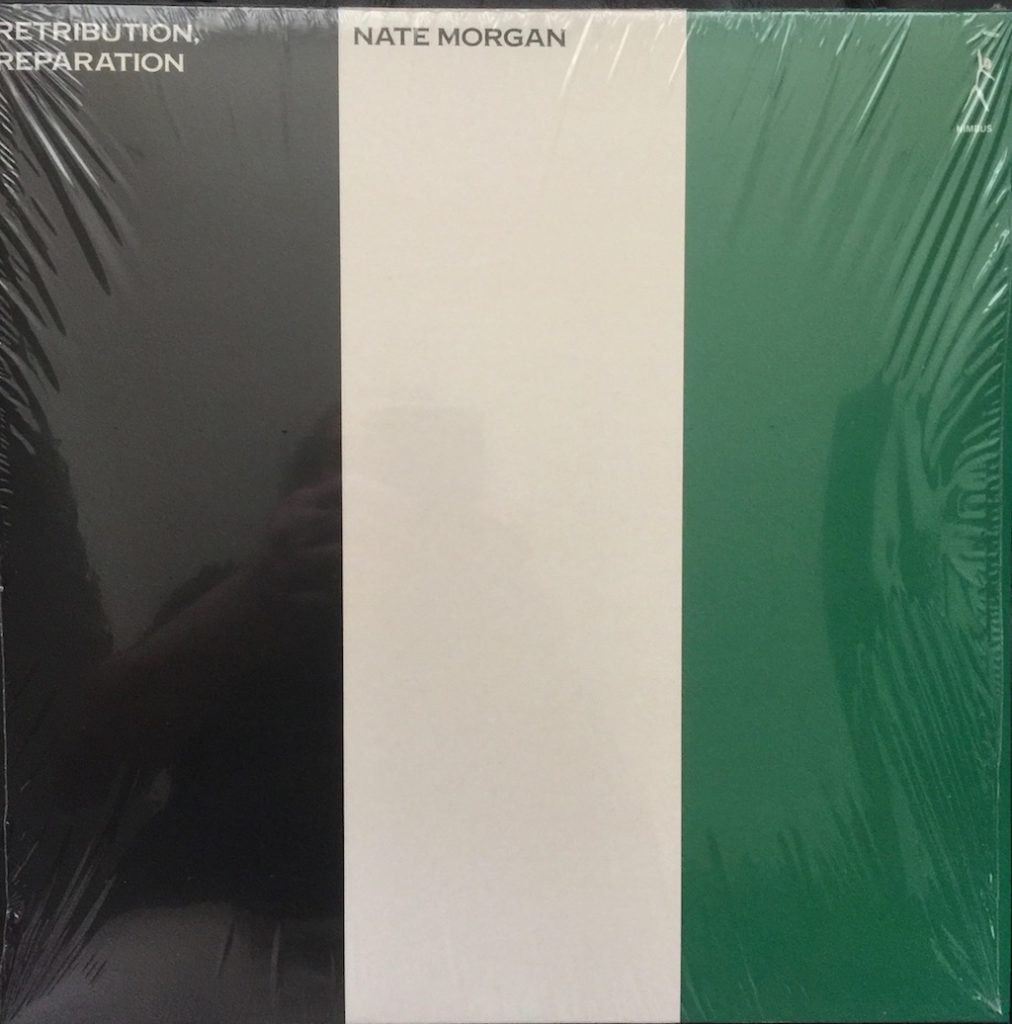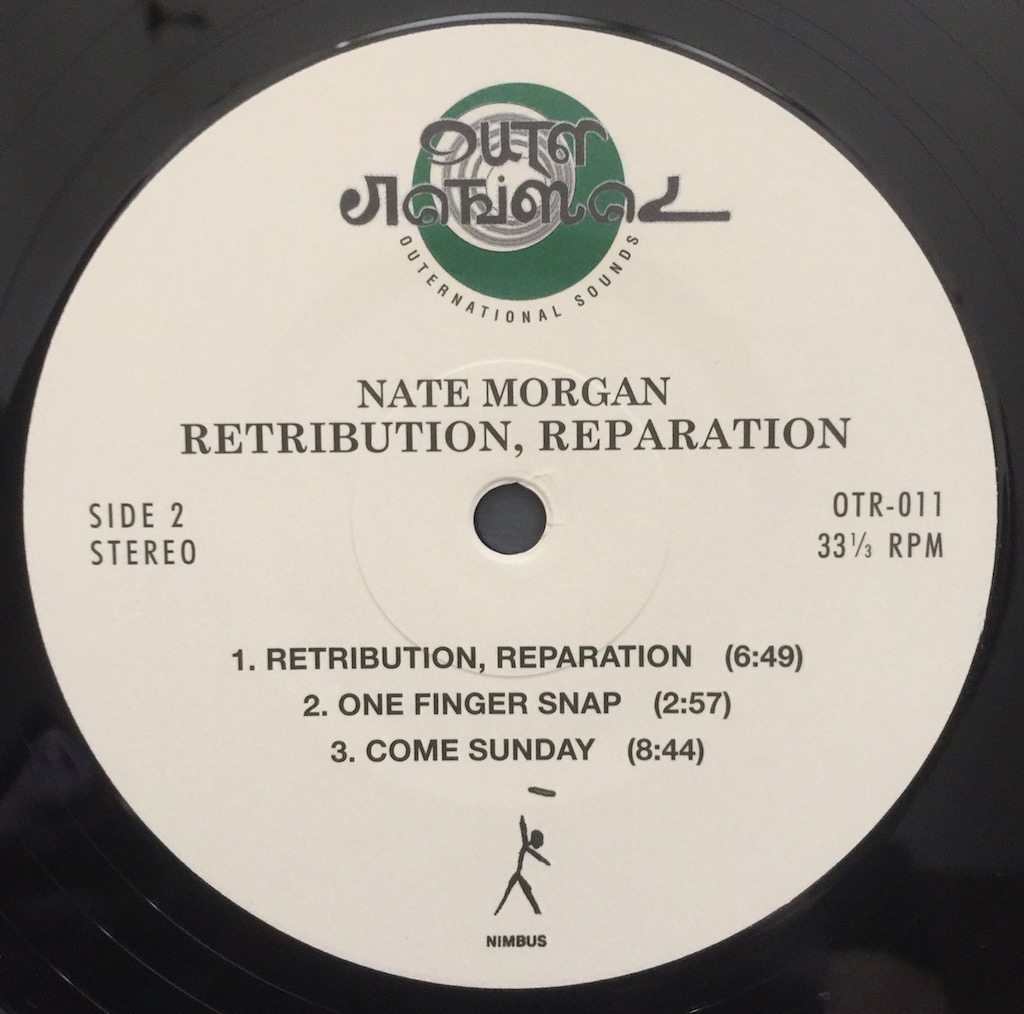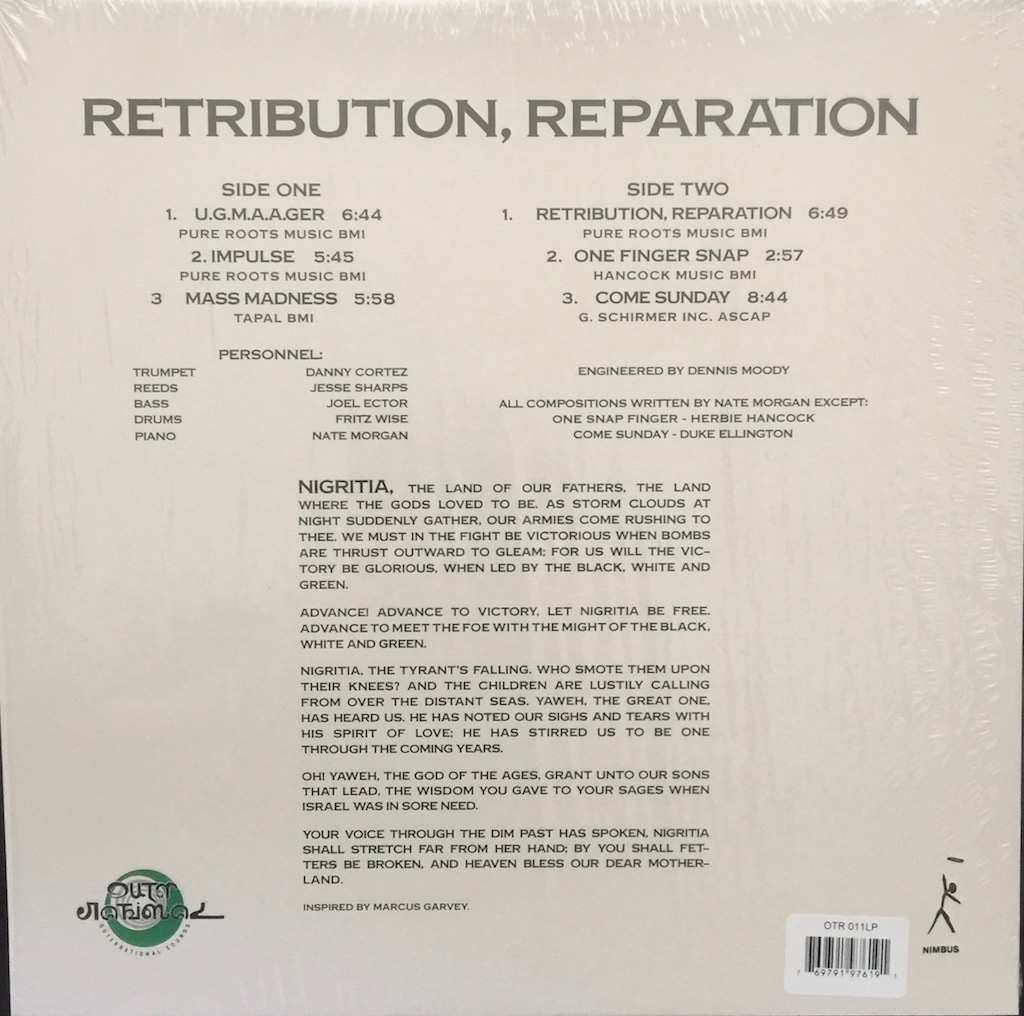Nate Morgan- Retribution, Reparation

Nate Morgan’s Retribution, Reparation follows his Journey Into Nigritia (covered here) and should be regarded in some ways a part of a continuum—Morgan was exploring a world that still remains undiscovered today—driven by love, not tyranny and inspired by the voices of the past to lead new generations toward a brighter future. The God of the Old Testament is called upon, and the archaic term for the land of blacks in Africa- “Nigritia” still figures into the liner notes, which are inspired by Marcus Garvey.
Both albums were released on Nimbus West and prices have climbed; Retribution, Reparation can now be had in a new reissue from Outernational Records for little cost and is definitely worth jumping on. Despite the spiritual bent and obvious Afro-centric themes, Morgan relies on compositions from the likes of Ellington and Herbie Hancock.

Although he was known by his association with Horace Tapscott, you can hear other influences as well—McCoy Tyner, whose elegant right hand of sweeping melodies was driven by powerful chords from his left hand—is evident in Morgan’s playing style. This album explores territory that fits between a horn-based band and a piano centered recording- it’s actually both. And it’s pretty glorious to listen to. That climbing cascade of chords on the left hand on the track “Impulse” could be a compositional theme in its own right. The first track strikes a balance between the horns and piano but the third track, “Mass Madness” is heavily tilted toward the horns, until the piano finally commands attention. And Morgan is fast, deft, machine gunning notes on the keys through these long, elegant phrases as fast as the horns can spit them out.

Side two starts with the title track, which is a splashy number, trumpet and reeds brilliantly intricate and note perfect: what’s going on here is beyond east meets west, it’s like somebody heard the future and came back to enlighten us. Morgan’s piano work is rock steady, that climbing bass in single notes and broken chords. This man is a sadly underrated pianist, perhaps due to the fact that his career and life were cut short while still in his vital years. He can swing, go bluesy, and get funky while maintaining a metronomic sense of time and the phrasing is wonderfully soulful. Dig the sustain on the last held notes- this recording has that gravitas of a good piano recording.
The next number is courtesy of Herbie Hancock- an upbeat study of intricate piano phrases set against an ascending and descending bass line; when the horns come in, it’s a triumphant entry and sets a melody that takes us to completion.

The last tune is a beauty, slow, muted trumpet, the band wound down and back to a lilting pace as the trumpet explores the motif, leading the woodwinds to pick up the tune. It’s all pretty mellow by comparison to the other tracks on the album. This is a jazz standard that is respected by more avantgarde players; there’s no need to torture the song or bend it out of shape to make a point. It’s fast paced, but has all the elegance the Duke wrote into the song. The bass solo is lovely, as is the interplay with the percussion. Gorgeous piece, played exceptionally well and full of soul.This album gets my highest recommendation, particularly given the relatively low cost of this reissue.
Bill Hart
Austin, TX
May, 2020
Nimbus West has a note on their website that Outernational Sounds reissues are bootlegs sourced from MP3 and not to buy them: https://www.nimbuswestrecords.com/